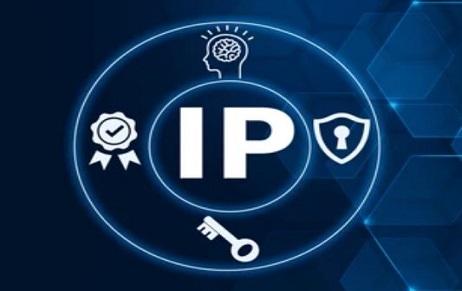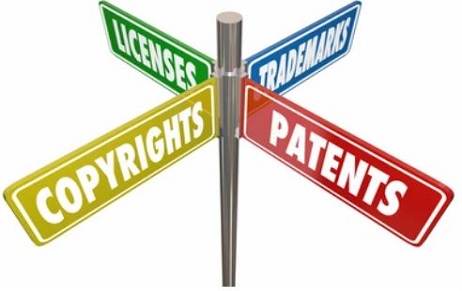The legal dispute between Bayer Corporation and the Union of India, along with other parties,…
Compulsory Licencing
Introduction
Compulsory licence is a licence issued by the government to an applicant for making, using, selling a patented product or making use of a patented process without consent of the patentee.
Provisions related to compulsory licensing are outlined in Chapter 16 of the Patents Act, 1970.
Application of compulsory licencing
Section 84 of the Patents Act, states that any person interested can make an application to the Controller for grant of compulsory licence on a patent any time after three years have expired from date of grant of patent. The application can be made when the following grounds are fulfilled:
- Reasonable requirements of the public are not satisfied with respect to the patented invention
- Patented invention is not available at a reasonably affordable price to the public
- Patented invention is not used in the territory of India
Any interested person may file the application for a compulsory licence via Form 17, along with a prescribed fee in the Indian patent office. The application shall contain a statement setting out the nature of the applicant’s interest and the facts on which the application is based.
The controller takes into account the following while considering the application for compulsory licencing as per Section 84(6):
- Nature of the invention, time elapsed since sealing of the patent and measures taken by the patentee to use the invention fully
- Applicant’s capability to work the invention to public benefit.
- Capacity of the applicant to undertake risk
- Efforts made by the applicant to obtain a licence from the patentee and such efforts have been unsuccessful.
Reasonable Requirements of the Public
Section 84(7) states that the reasonable requirements of the public are not satisfied if:
- Patentee has refused to grant a licence on terms that:
- An existing trade or industry or establishment of any new trade or industry in India is prejudiced
- Demand for patented article has not been met to an adequate extent
- Market for export of the patented article is not being developed
- Development or establishment of commercial activities in India is prejudiced
- There is a prejudice with respect to use of patented products or processes, the manufacture, use or sale of materials not protected by the patent or the establishment or development of any trade or industry in India due to conditions imposed by the patentee upon the grant of a licence.
- Patentee imposes a condition to provide an exclusive grant back, preventing challenges to validity of the patent or coercive package licencing.
- The invention is not worked in India on a commercial scale to an adequate or fullest extent that is considered as reasonably practicable.
- The commercial use of patented invention is prevented or obstructed by importation of the patented product from any foreign country by:
- Patentee or persons claiming under him
- Persons directly or indirectly procuring from him
- Other persons against whom the patentee has not taken proceedings for infringement
Procedure for processing Compulsory Licence application
Section 87 provides the procedure for granting of compulsory licences. Upon consideration of an application for compulsory licence, if the Controller is satisfied that a prima facie case has been made out. The Controller takes into consideration:
- The nature of the invention
- The applicant’s capability to work the invention
- Whether the applicant has made any efforts for reasonably obtaining a license from the patentee
- Whether such efforts have not been successful within a reasonable time period.

The Controller shall direct the applicant to serve copies of the application to the patentee and any other person interested in the patent in respect of which the application is made. The application will then be published in the official journal.
The patentee or any other person who wishes to oppose the application may submit a notice of opposition to the Controller within two months from the date of publication of the application or within such time as the Controller might permit.
The notice of opposition includes grounds on which the application is opposed along with the terms and conditions of the licence.
The Controller shall notify the applicant on receiving the notice of opposition, and shall give to the applicant and the opponent an opportunity to be heard before deciding the case.
Revocation of patents for non-working
Section 85 of the Patents Act provides details on revocation of patents by the Controller due to non-working. Any person interested or the central government can make an application to the Controller to revoke the patent. The application can be made after the expiration of 2 years from the date when the first compulsory licence was granted.
The revocation can be made on the following grounds:
- The patented invention is not worked on or used in India.
- Reasonable requirements of the public as per Section 84(7) are not satisfied with respect to the patented invention.
- The patented invention is not accessible to the public at a reasonably affordable price.
The application also contains other prescribed particulars and the nature of interest of applicants if made by any person other than the Central Government. If the controller is satisfied with the above-mentioned grounds, he may grant the order to revoke the patent. The section also details that every application made with this regard must be decided within one year from the date when it was presented before the Controller.
Terms and Conditions of Compulsory Licence
Section 90 of the Patents Act provides necessary terms and conditions of the compulsory license. The Controller shall decide on royalties and remuneration payable to the patentee considering invention’s nature, expenditure incurred for making and developing the invention, obtaining a patent and for keeping the patent in force. The Controller shall ensure that patented invention is worked to the fullest extent by the license holder and is available to the public at reasonably affordable prices. The compulsory licence granted is a non-exclusive licence and the right is non-assignable.
The Central Government, may also instruct the Controller at any time to authorise any licensee in respect of a patent to import the patented product or a product made by a patented process from outside India, if necessary, in public interest. Such authorisation is subject to conditions, such as details of royalties and other remuneration, the amount of import, sale price of the imported article and import period and other matters.
Termination of Compulsory Licence
Section 94 of the Patents Act deals with the process for terminating the compulsory licence. On an application made in Form 21 by the patentee or any other person interested, the compulsory licence granted under Section 84 may be terminated by the Controller. The termination can be made when the circumstances that gave rise to the grant does not exist and are unlikely to recur. However, the holder of the compulsory licence shall have the right to object to such termination, within one month from the date of the Controller’s receipt of the application. While reviewing the application, the Controller ensures that the interest of the licensee is not unduly prejudiced.
Author: Neha Vivek A, in case of any queries please contact/write back to us via email to chhavi@khuranaandkhurana.com or at IIPRD.
References
- The Patents Act, 1970 – Chapter 16 – Working of Patents, Compulsory Licences and Revocation.
- The Patent Rules, 2003.



